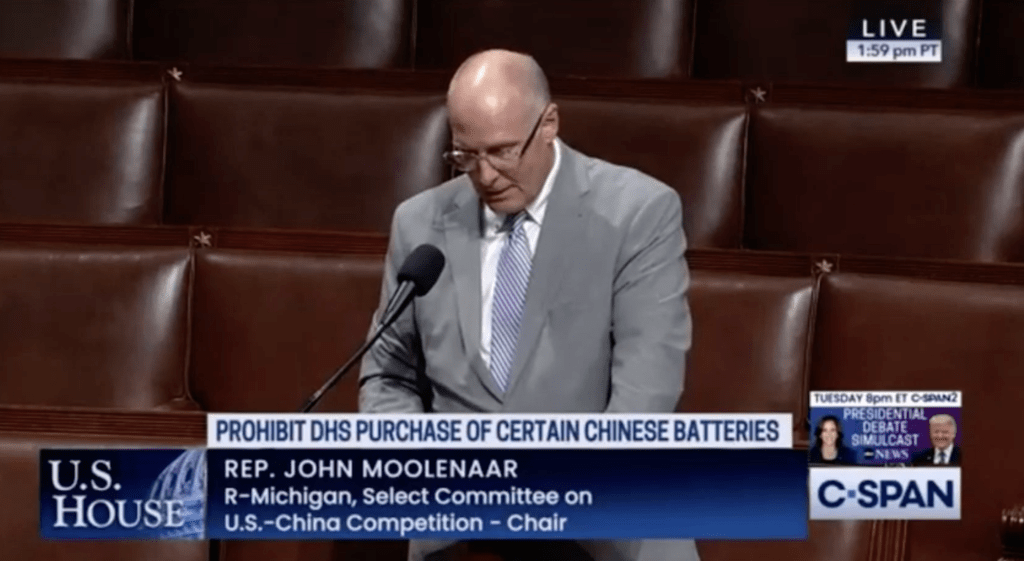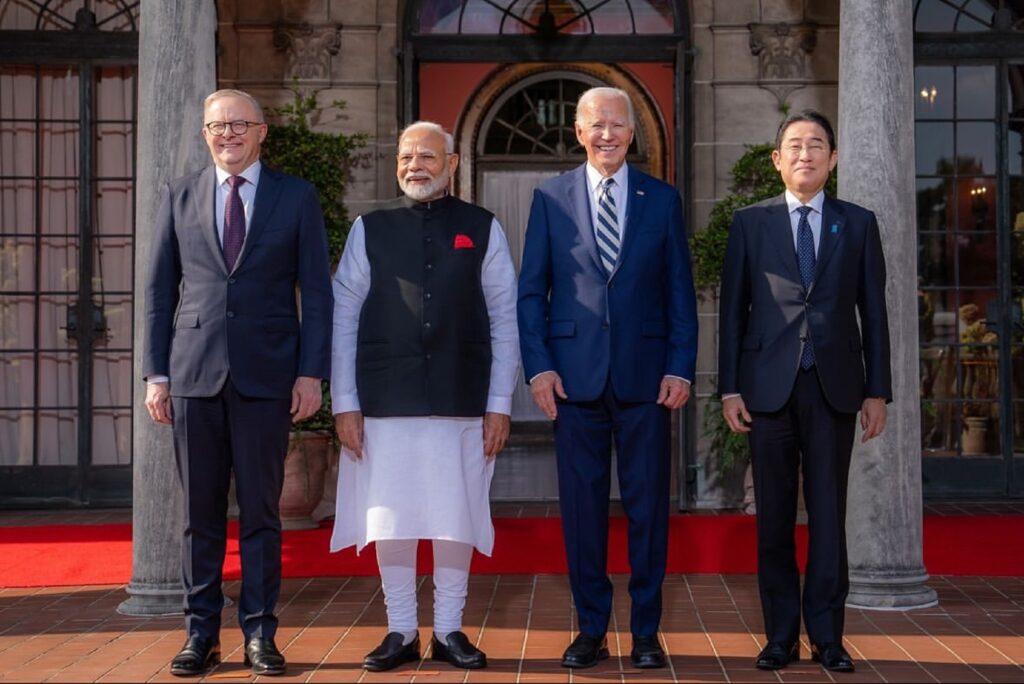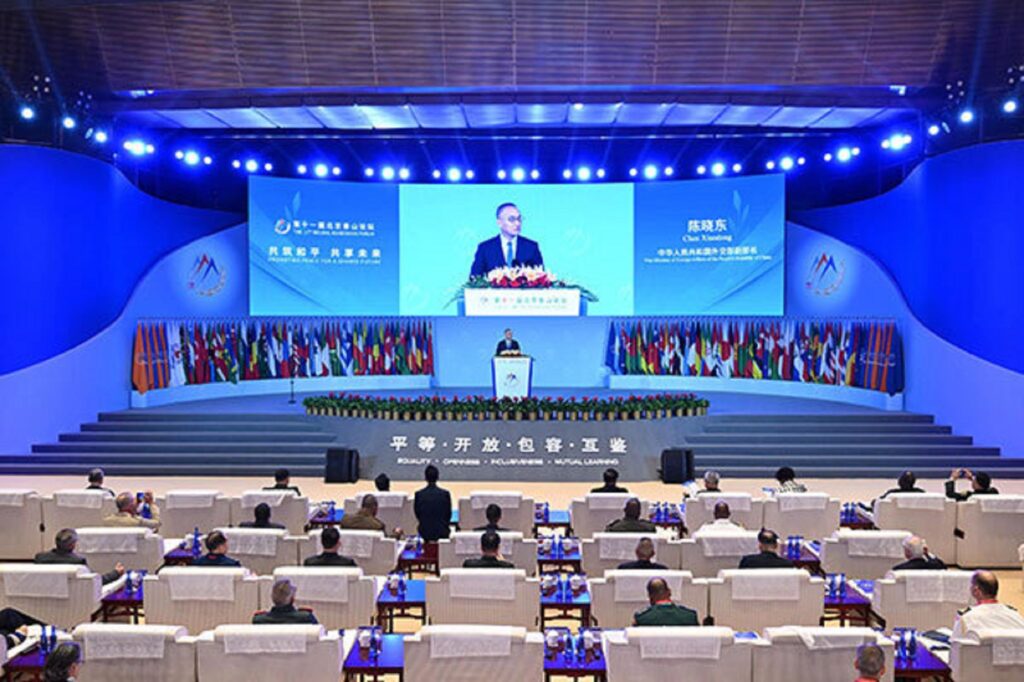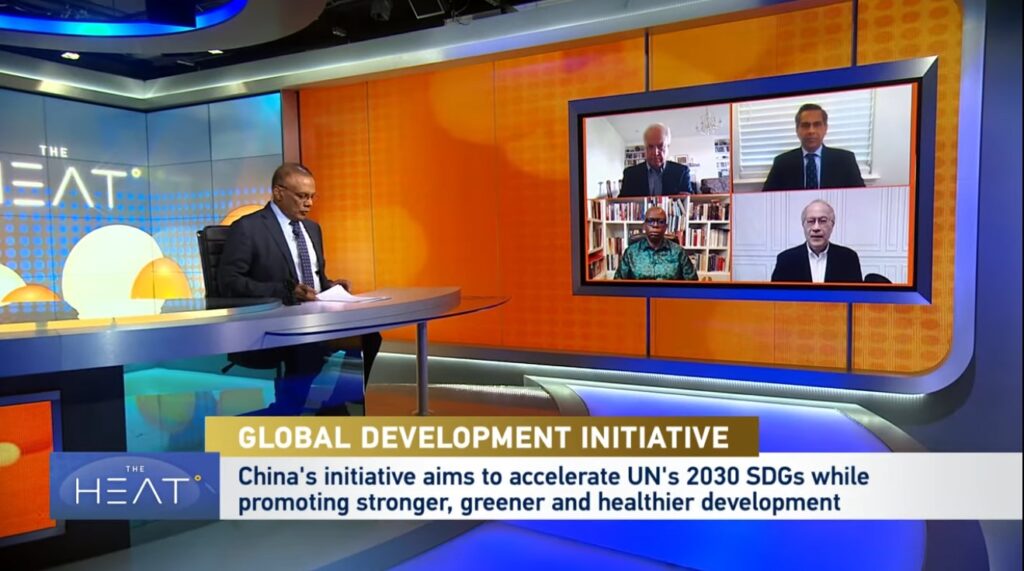
ICAS Bulletin (online ISSN 2836-3418, print ISSN 2836-340X) is published every other week throughout the year at 1919 M St NW, Suite 310, Washington, DC 20036.
The online version of ICAS Bulletin can be found at chinaus-icas.org/bulletins/.

– A House committee report released on September 23 claims that U.S. federal research funding has helped advance Chinese military technologies, particularly in fields like hypersonics and AI. The report recommends stricter guidelines to limit U.S.-China research collaborations, citing concerns that these partnerships could strengthen China’s military capabilities and undermine U.S. national security.
– The week of September 9-13 was dubbed ‘China Week’ in the U.S. Congress, during which both the House and the Senate proposed—and in several cases passed—a collection of 28 China-related bills ranging from drugs to selective biotechnologies.
– For instance, the U.S. House passed the BIOSECURE Act, aiming to block Chinese-linked biotech companies from receiving federal funds due to national security concerns. Supporters argue that it protects U.S. health data, while critics warn it could stifle innovation and disrupt pharmaceutical collaborations reliant on Chinese firms.
– The U.S. House also passed a bill tightening restrictions on Chinese content in vehicles eligible for electric vehicle (EV) tax credits, aiming to reduce reliance on China’s EV supply chain. Automakers warn the move could limit available tax credits, impacting EV adoption and U.S. competitiveness in the global market.
– Beijing has vowed to take “strong and effective measures” in response to the string of proposed legislations, including one that could lead to the closing of Hong Kong’s U.S.-based trade offices.
– The week of September 9-13 was dubbed ‘China Week’ in the U.S. Congress, during which both the House and the Senate proposed—and in several cases passed—a collection of 28 China-related bills ranging from drugs to selective biotechnologies.
Associated News References:
“U.S. Research Aided Chinese Military Technology, House Republicans Say,” The New York Times, September 23
“China Tech Firms at Risk as US Lawmakers Rebuff Lobbying Efforts,” Bloomberg, September 18
“It was ‘tough on China’ week in Congress, one of the few issues both parties agree on,” NBC News, September 14
“Congress targets Chinese influence in health tech. It could come with tradeoffs,” AP News, September 13
“US House passes bill targeting China that would limit EV tax credits,” Reuters, September 12
“China threatens to retaliate over U.S. bill that could shutter Hong Kong trade offices,” CNBC, September 12

– On September 18, the Chinese government rejected a U.S. investigation into whether it is helping Russia bypass a ban on uranium exports, reaffirming its opposition to “illegal unilateral sanctions.”
– On September 17, sources reported that the U.S. and Japan are nearing an agreement to curb technology exports to China’s chip sector, though Tokyo has concerns about potential backlash from Beijing.
– On September 13, the Biden administration announced plans to impose tariffs on Chinese imports to protect U.S. factories and to project a tough stance on China ahead of the U.S. presidential election. The steep tariff hikes include a 100% duty on electric vehicles and higher tariffs on solar cells and semiconductors.
– The White House proposed new rules to close a tax loophole, known as de minimis, that allows retail companies like Shein and Temu to bypass import fees by shipping small, direct-to-consumer packages under $800. The move aims to protect U.S. workers and ensure compliance with trade laws, though both retailers assert that the loophole is not central to their business models.
Associated News References:
“China Pushes Back on US Probe of Uranium Exports,” U.S. News, September 18
“US and Japan near deal to curb chip technology exports to China, FT reports,” Reuters, September 17
“Biden Administration Ratchets Up Tariffs on Chinese Goods,” The New York Times, September 13
“US locks in steep China tariff hikes, some industries warn of disruptions,” Reuters, September 13
“Shein and Temu face a big change to how they ship cheap Chinese goods,” NPR, September 13

– The U.S. said it plans to keep its Typhon missile system deployed in the Philippines, despite Chinese expressed concerns and demands for its removal, so its feasibility in a potential regional conflict can be tested.
– President Joe Biden hosted the leaders of Australia, India, and Japan for a Quad Summit to discuss regional security in Asia. The Summit focused on maritime security in the South China Sea, illegal fishing, and coordinating efforts against China’s regional aggression, though National Security Advisor Jake Sullivan noted that the Summit was “not directed at another country.”
– On September 18, China sanctioned nine U.S. military-linked firms, freezing their assets in China as a response to U.S. arms sales to Taiwan. Beijing urged the U.S. to stop supporting Taiwan’s independence, calling the arms deals a threat to regional peace and stability.
– On September 17, a U.S. P-8A patrol aircraft flew through the Taiwan Strait, prompting China’s military to tail the plane and declare its commitment to defending Chinese national sovereignty. The U.S. Navy confirmed the flight, asserting that it was in international airspace and consistent with upholding navigational rights in the Indo-Pacific, while Taiwan’s defense ministry noted no unusual activity.
– On September 17, the U.S. deployed 100 soldiers to the Aleutian Islands in response to increased Russian and Chinese military activity near Alaska. This move follows several incursions into U.S. air and sea zones.
Associated News References:
“Biden convenes Quad with eye on China,” Politico, September 21
“Exclusive: US keeps missile system in Philippines as China tensions rise,” Reuters, September 20
“China hits 9 US firms with property freeze over weapons sales to Taiwan,” Reuters, September 18
“China says it tailed US aircraft over Taiwan Strait,” Voice of America, September 17
“100 soldiers deployed to Aleutian Chain amid increasing Russian, Chinese activity near Alaska,” Alaska’s News Source, September 17

– On September 23, the U.S. Commerce Department proposed a national security ban on Chinese and Russian car parts, focusing on vehicle connectivity software and hardware, to take effect in 2027. The ban aims to protect against potential cyber threats, citing risks of surveillance and sabotage from foreign technologies being located in vehicles in the U.S.
– Following the proposed ban on car parts, China issued a warning to the U.S., urging against taking “discriminatory actions.”
– The U.S. FBI announced that they had disrupted a Chinese hacking group, called “Flax Typhoon,” known for targeting U.S. critical infrastructure by creating a botnet from compromised devices. The group, allegedly backed by the Chinese government through the Integrity Technology Group, infected over 250,000 devices worldwide, affecting universities, government agencies, and telecom providers.
– The social media company TikTok met the U.S. government in court again, arguing that a law forcing it to divest from its Chinese parent company ByteDance is unconstitutional, while the U.S. Justice Department defended the law as necessary to eliminate national security risks. The U.S. claims that TikTok poses a threat due to data collection and potential manipulation by the Chinese government, but TikTok insists the concerns are unfounded and that the law violates the First Amendment of the U.S. Constitution.
Associated News References:
“U.S. proposes ban on Chinese auto parts so cars ‘can’t be used against us’,” NPR, September 23
“Beijing warns U.S. against taking ‘discriminatory actions’ after reports of new trade ban on cars with Chinese tech,” Fortune, September 23
“FBI disrupts major Chinese hacking group, director says,” DW, September 18
“LISTEN LIVE: Court hears arguments in TikTok’s challenge to law forcing sale or ban of social media app,” PBS News, September 16

– David Lin, a U.S. pastor being detained in China since 2006 after being sentenced to life for aiding an unapproved church, was released and returned home. While his release was a priority for the Biden administration, two other Americans, Kai Li and Mark Swidan, remain imprisoned in China, and U.S. officials say they will continue to advocate for their freedom.
– On September 16, Kanye West, also known as Ye, performed in Haikou, China, marking his first performance in the country in 16 years. Despite his controversial reputation and China’s strict censorship of foreign artists, the concert sold out quickly, and Chinese social media users expressed surprise at the government’s decision to approve the event.
– American singer Mariah Carey gained attention sharing photos of her trip to China with her children, including a visit to the Great Wall, while preparing for her concerts in Beijing on September 15 and 16.
– Historians researching China, especially those studying controversial topics, are still finding it very difficult to conduct primary research or travel to China, according to a Reuters study.
– Former CIA officer Alexander Yuk Ching Ma was sentenced to 10 years in prison for providing classified information to Chinese intelligence in exchange for money and gifts. Ma admitted to conspiring with China for over a decade and was arrested in 2020.
Associated News References:
“An American pastor held in a Chinese jail for nearly two decades is finally home,” CNN, September 16
“Kanye West performs in China after rare approval by country’s censors,” The Guardian, September 16
“Mariah Carey shares sweet family photos from China ahead of Beijing shows,” ABC News, September 14
“China wants academic exchange but historians say increased censorship makes research hard,” Reuters, September 13
“Ex-C.I.A. Officer Who Spied for China Is Sentenced to 10 Years in Prison,” The New York Times, September 12

“China to Investigate U.S. Retailer, Sending a Message Over Xinjiang,” The New York Times, September 24
“Jamie Dimon thinks India will be the new China as U.S. aims to diversify away from possible future adversary,” Fortune, September 24
“85 years later, Chinese family honors the Black couple who rented to them,” The Washington Post, September 18
“Former US Secretary Kerry calls for new trade rules, cooperation with China on climate,” Reuters, September 18
“China Indo-Pac military power trumps US, but US remains more influential: Lowy Institute,” Breaking Defense, September 18
“Exclusive: Inside the US push to steer Vietnam’s subsea cable plans away from China,” Reuters, September 17
“Japan, US Face Shared Challenge From Cheap China Steel, Japan PM Hopeful Says,” U.S. News, September 14
“China and Russia chide West at security forum in Beijing,” Reuters, September 13
On Monday, September 23, 2024, Senior Fellow Sourabh Gupta was interviewed by China Daily on the Section 301 tariffs and its impact on the U.S. electric vehicle domestic manufacturing sector.
On Saturday, September 21, 2024, Senior Fellow Sourabh Gupta was interviewed by South China Morning Post on the September 2024 Quad Leaders Summit hosted by President Biden.
On Tuesday, September 17, 2024, Senior Fellow Sourabh Gupta was interviewed by South China Morning Post on the China Policy debate in the presidential election campaign.
On Tuesday, September 17, 2024, Senior Fellow Sourabh Gupta was interviewed by South China Morning Post on the developments in China’s S&T and academic ecosystem in the context of the U.S.-China technology competition.
On Friday, September 13, 2024, Senior Fellow Sourabh Gupta was interviewed by China Daily on the recent China-Africa Summit in Beijing.

On Friday, September 20, 2024, Senior Fellow Sourabh Gupta was interviewed by CGTN America’s The Heat on the Global Development Initiative.

The Institute for China-America Studies is an independent nonprofit, nonpartisan research organization dedicated to strengthening the understanding of U.S.-China relations through expert analysis and practical policy solutions.
1919 M St. NW Suite 310,
Washington, DC 20036
icas@chinaus-icas.org
(202) 968-0595
© 2025 INSTITUTE FOR CHINA-AMERICA STUDIES. ALL RIGHTS RESERVED.